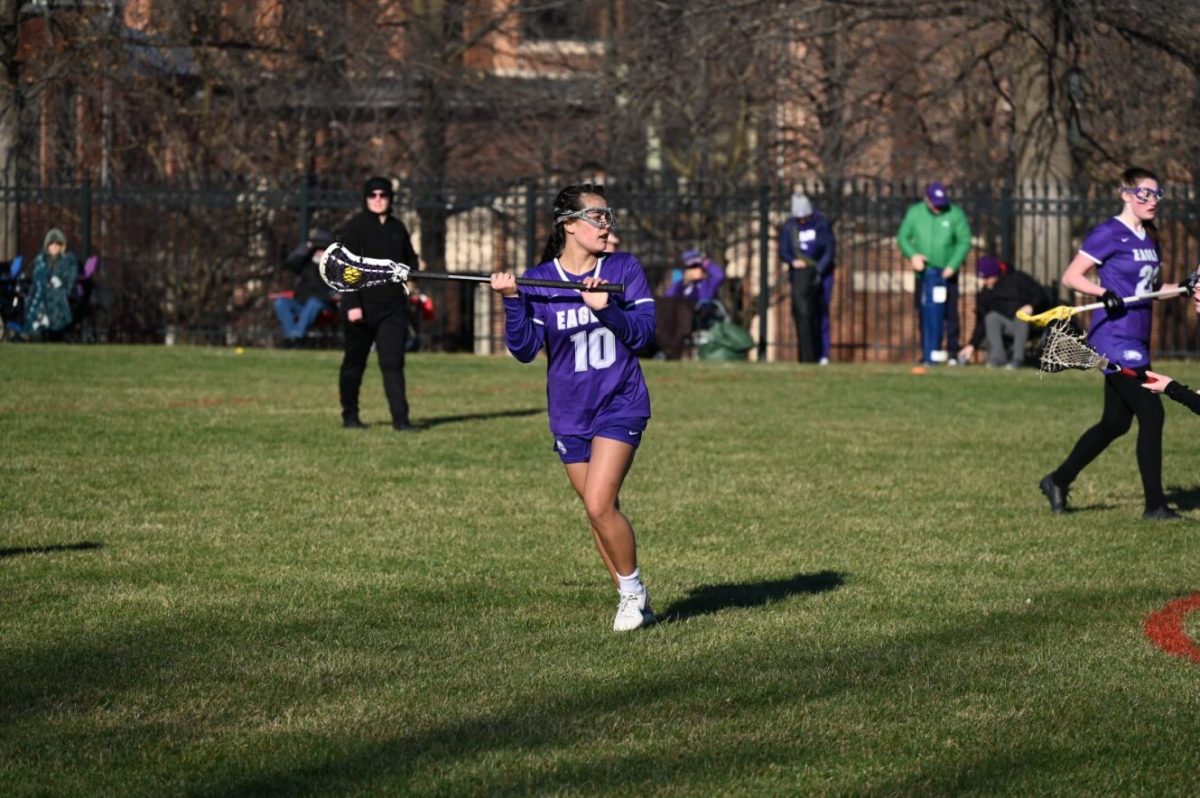Banita Gurung still remembers the day her father was pulled over. Despite the Nepali immigrant complying fully, it was a scary moment, as he couldn’t understand anything the officer was saying. “The officer was asking some questions, and my father, not knowing English, had no clue,” said Gurung, a member of Central’s Asian Cultural Club.
The language barrier is just one of the many transportation-related issues for immigrants, including youth who are juggling school, work and other responsibilities. Financial burdens, time, lack of public transportation and more can all be a cause for concern amongst students from immigrant households at Central.
Betsy Tenorio Hernandez, an officer of Central’s THRIVE Leadership Club, which works to promote leadership and community involvement for immigrants, summed it up as “immigrants being put in a tough spot.”
Many students, including those who entered the country illegally, have school, activities, errands, entertainment and work to support themselves and their families. And because some students risk being deported by admitting their immigration status when trying to obtain licenses or permits, they are often left with the only option being to drive illegally.
Tenorio Hernandez, Gurung and Emma Miranda, the president of Central’s Latino Leaders Club, all said that it is common for students to drive illegally as an immigrant. “Most of the time, it’s because they notice that their parents need someone else in the household to help with transportation or for the children as a way or passage of freedom,” Miranda said.
Securing lawful immigration status, which can be proven by documents like birth certificates, valid passports and citizenship forms, is a major challenge. But even with lawful status, Tenorio Hernandez said many issues can be at play when an immigrant is trying to obtain their license.
“[Immigrants are] treated as second-class citizens regardless of status; the lack of support from the government is what causes immigrants to take more risks like driving illegally,” Tenorio Hernandez said.
Miranda explained that the financial burden is enormous. Insurance rates, licensing fees, maintenance and repair costs, driver’s education courses, and the potential cost of getting in a car accident all add up quickly and are too expensive for some households.
A lack of public transportation also contributes to the issue. According to the Omaha Community Foundation, those who used Omaha’s public transportation as their sole mode of transit to and from work had commutes over 45 minutes 33% of the time. Long commutes and unreliable timing and routes make it harder for people to get to places on time.
Unreliable school busing is another issue immigrant students face. Beginning this year, Omaha Public Schools reduced the number of student bus routes from 228 to about 175, according to the Omaha World-Herald. The district also increased the eligible distance for busing from one and a half miles to two miles for high school. These changes were an attempt at improving bus reliability and helping to solve the bus driver shortage. However, they may be leaving students who desperately need transportation unable to receive it.
Access to proper driving education and training is also limited because of costs, availability, and legal status, meaning more jump right into driving with no previous experience. It doesn’t mean they are bad drivers, though, Miranda said. “It’s not like non-licensed immigrants don’t know how to drive. Some who do drive are very good drivers; it’s the consequences and worry of getting caught that usually causes issues,” she said.
The consequences of getting caught doing so are high. For those who aren’t in lawful immigration status, Tenorio Hernandez said there is always a fear of being deported. For those with lawful status, she said there is a risk of expensive legal costs that many cannot afford. Gurung echoed that point, explaining that finding adequate legal representation is very difficult.
States like New York and Colorado have stepped in to help alleviate driving issues for immigrants. New York’s “Driver’s License Access and Privacy Act,” commonly known as the “Green Light” law, passed in 2019. The New York Department of Motor Vehicles said the bill “Allows all New Yorkers age 16 and older to apply for a standard, not for federal purpose, non-commercial driver license or learner permit regardless of their citizenship or lawful status in the United States.” It requires the same tests as normal permits and licenses, but it allows for anyone who can provide documents like proof of name, date of birth, or New York state residency. Colorado’s law, called the “Road and Community Safety Act,” passed in 2013 and is identical to New York’s law.
Tenorio Hernandez said Nebraska has a lot of catching up to do when it comes to laws like that. “A lot of laws in Nebraska are very anti-immigrant, which are often not backed by facts but instead by stigma for immigrants,” she said.
She also touched on the fact that Nebraska doesn’t have backbones of support for immigrants, which only makes the issue of driving even tougher. They are often profiled, Tenorio Hernandez said. Miranda believes Nebraska should increase the number of bilingual employees at all agencies and businesses in the state to help alleviate some issues, such as the language barrier.


















